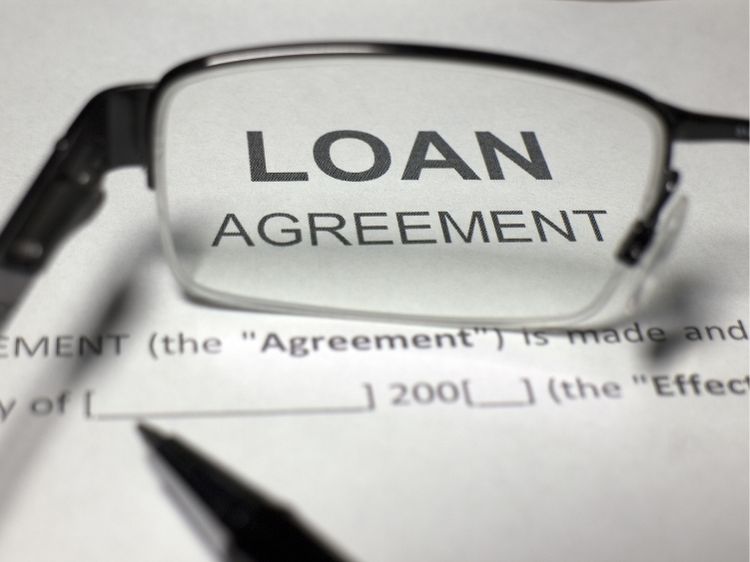Home equity loan rates can be a bit of a mystery, especially if you’re just starting to explore your home’s potential as a financial resource. As a homeowner, tapping into your home’s equity could be one of the smartest moves, especially when you need extra cash for significant expenses like renovations, education, or consolidating debt. But here’s the catch—understanding how home equity loan rates work and finding the best rates possible can make a huge difference in how much you’ll ultimately pay. This guide will walk you through the ins and outs of home equity loan rates so you’re well-prepared to make an informed decision.
What is a Home Equity Loan?
A home equity loan allows you to borrow against the value of your home. It’s a bit like a second mortgage, as it uses your home as collateral. The loan amount is based on your home’s equity, which is calculated by subtracting what you owe on your mortgage from your home’s market value. One key benefit? The interest on home equity loans is generally lower than on other types of loans since they’re secured by your home.
Why Do People Opt for Home Equity Loans?
Home equity loans are popular for various reasons:
- Lower Interest Rates: Compared to credit cards or personal loans, home equity loans typically offer lower rates.
- Fixed Payments: These loans usually come with fixed interest rates, which means predictable monthly payments.
- Tax Benefits: In some cases, you may be able to deduct the interest on your home equity loan, making it an attractive option for homeowners.
How Are Home Equity Loan Rates Determined?
Home equity loan rates aren’t set in stone; they fluctuate based on several factors, both personal and economic. Understanding these elements will help you secure a better rate and save on interest payments. Here’s a breakdown of what affects home equity loan rates:
1. Credit Score
Your credit score is one of the most significant factors. A high credit score often means lower interest rates, as lenders view you as a low-risk borrower. For home equity loans, a credit score of 700 or above is usually ideal.
2. Loan-to-Value (LTV) Ratio
The LTV ratio compares the loan amount to the appraised value of your home. The lower your LTV, the less risky you appear to lenders, often resulting in lower rates.
3. Market Conditions
Rates are also influenced by current market conditions, including inflation and the Federal Reserve’s interest rates. When the economy is strong, loan rates tend to be higher. On the flip side, rates often drop in times of economic downturn.
4. Loan Amount
The loan amount can impact your rate, as larger loans might come with slightly higher rates. This is because lenders face more risk when lending higher amounts.
5. Loan Term
Home equity loan terms typically range from 5 to 15 years. Shorter terms usually have lower interest rates, while longer terms might have slightly higher rates but provide lower monthly payments.
Types of Home Equity Loan Rates: Fixed vs. Variable
When it comes to home equity loan rates, you’ll encounter two main types: fixed and variable. Both have their advantages, so let’s break down the pros and cons of each.
Fixed-Rate Home Equity Loans
With a fixed-rate loan, the interest rate remains constant throughout the loan term, providing predictable monthly payments. Fixed rates are ideal if you prefer consistency and want to avoid fluctuations in your payments.
Pros:
- Predictable monthly payments
- Protection from interest rate increases
Cons:
- May start at a slightly higher rate compared to variable options
Variable-Rate Home Equity Loans
Variable-rate loans, often tied to the prime rate, may start with a lower interest rate, but the rate can change over time. This option can be a gamble; your payments might fluctuate, which could be beneficial or challenging, depending on the rate environment.
Pros:
- Lower initial rate
- Potential savings if rates drop
Cons:
- Unpredictable monthly payments
- Higher risk if interest rates rise
Current Trends in Home Equity Loan Rates
Understanding the current trends in home equity loan rates can help you gauge when it’s the right time to take out a loan. In 2024, rates have been relatively stable, but changes in Federal Reserve policy and inflation rates could impact future loan rates. Keeping an eye on these trends, as well as consulting with your lender, can ensure you’re locking in a competitive rate when the time is right.
How to Get the Best Home Equity Loan Rates
Securing the best home equity loan rates requires some preparation. Here are some tips to help you get the most favorable terms possible:
- Improve Your Credit Score:
Check your credit score before applying and take steps to improve it if necessary. Paying off debts and correcting errors on your credit report can make a noticeable difference. - Shop Around:
Don’t settle for the first rate you’re offered. Compare rates from different lenders, including banks, credit unions, and online lenders, to find the best deal. - Choose a Shorter Term:
Opting for a shorter loan term often means a lower interest rate, though it may result in higher monthly payments. - Maintain a Low LTV Ratio:
Try to borrow only what you need, as a lower LTV ratio can help secure a lower rate. - Consider the Timing:
If rates are trending lower, you might benefit from waiting to lock in a rate. However, this can be risky if rates are unpredictable.
FAQs About Home Equity Loan Rates
1. What is a good home equity loan rate?
A good home equity loan rate will vary based on the economy and your financial profile. However, as of 2024, anything below 8% is considered favorable for a well-qualified borrower.
2. Are home equity loan rates higher than mortgage rates?
Yes, home equity loan rates are usually higher than primary mortgage rates since they’re considered second-lien loans. However, they are still generally lower than personal loan rates.
3. Can I get a home equity loan with bad credit?
While it’s possible, a lower credit score can make it challenging to secure competitive rates. Lenders may require a higher interest rate or additional collateral.
4. How is the interest on a home equity loan calculated?
Most home equity loans calculate interest based on the loan’s remaining balance and the interest rate. Fixed-rate loans have consistent payments, while variable-rate loans can fluctuate based on the prime rate.
5. Is the interest on home equity loans tax-deductible?
Yes, interest on home equity loans can be tax-deductible, provided the funds are used to improve the home securing the loan. Consult a tax advisor for specific guidance.
Conclusion: Is a Home Equity Loan Right for You?
Choosing to tap into your home’s equity is a significant financial decision. If you’re seeking a predictable and generally lower-cost loan option, a home equity loan with a fixed rate might be ideal. On the other hand, if you prefer flexibility and can handle some risk, a variable rate could offer savings. The key is to understand how these rates work and how they’ll impact your monthly payments over time. Whether for home improvements, debt consolidation, or personal investments, selecting a home equity loan with the right rate can make your financial goals a reality.
Authoritative Sources
- Federal Reserve Economic Data (https://fred.stlouisfed.org/)
- Consumer Financial Protection Bureau (https://www.consumerfinance.gov/)
- IRS Home Equity Loan Interest Deduction Guidelines (https://www.irs.gov/)







